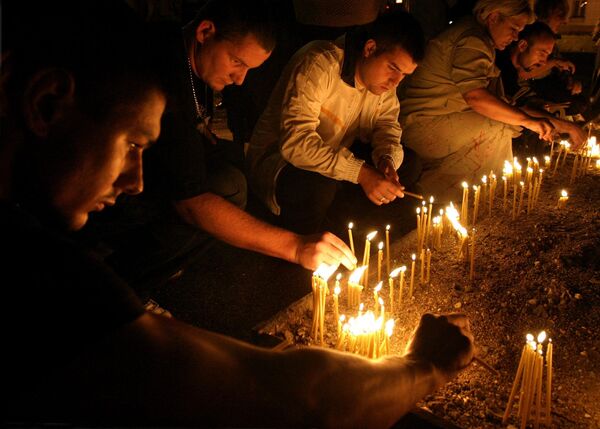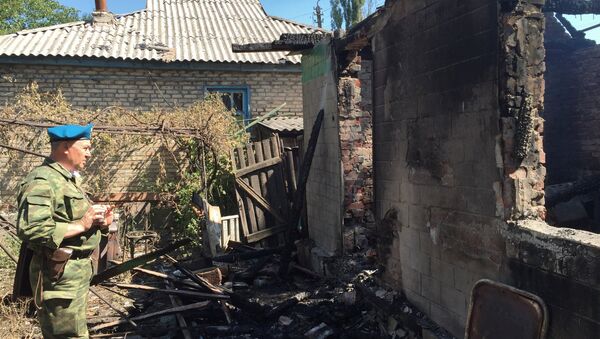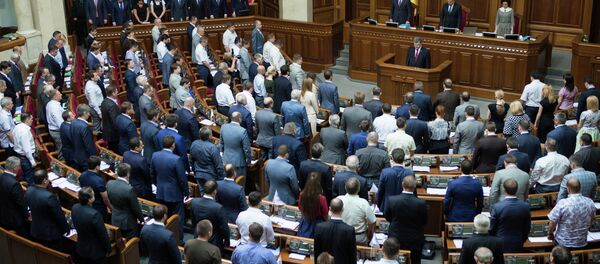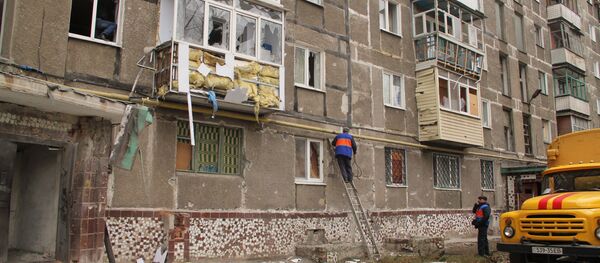Elena Guskova, who heads the Center for Studies of the Balkan Crisis, of the Russian Institute of Slavic Studies, explains why the parallel can be tempting for some observers of the Ukraine conflict.
However, Guskova is confident that the residents of Donbass are not facing the same fate which befell the ethnic Serbs living in what is now territory under the complete control of Zagreb.
"In Croatia there was no negotiation process, even the kind of difficult one that is currently going on in Ukraine. Apart from that, absolutely nobody gave backing for the RSK, even Belgrade did not officially."
"I don't think that now Kiev will decide to undertake a wide-scale military operation. Without the support of Washington and NATO it won't do that, and that support is not possible while Russia is providing help to Novorossiya."
Mikhail Polikarpov, a volunteer fighter in the former Yugoslavia and author of several books about the wars in the Balkans, and about Ukraine, also said he believed the parallel is misleading.
"If you are going to draw a parallel, you need to take into account that in 1995 the bulk of Serbs living in the Krajina did not want to fight. They had not been training their military personnel," said Kravchenko.
"In contrast, Croatia for three years strengthened its army, with help from the US (which was not always that useful) Zagreb used its past experience of the unsuccessful military campaign of 1991- 1993. Apart from that, in Croatian society there was a serious patriotic and nationalist drive."
"As regards Ukrainians, the unsuccessful campaigns for mobilization show that they don't want to take part in a war. They are finding ways to avoid service, including fleeing to the territory of other countries."
The possibility of undertaking such a military operation has been voiced by politicians in Kiev, including Andrey Parubiy, the vice-speaker of Ukraine's Verkhovnaya Rada, who last week sought to make a parallel between the fate of the RSK and the Donbass region.
"The situation then was very similar to what is now happening in Ukraine," Parubiy told Ukrainian television.
"It is necessary to buy time to prepare and equip the army, so that one day we can go on the offensive. Four years passed, and then suddenly one morning they started the operation 'Lightning,' and were able to clear a large area of territory in two days. And then they started the operation 'Storm,' and in a few days cleared more territory."
"'Buy time' — that is what our international partners often say to us."
According to figures from Veritas Research Center in Belgrade, 1,853 Serbs were killed or remain missing after the operation, and at least 220,000 residents of the RSK were forced to leave their homes and flee to neighboring Bosnia and Serbia, despite the territory of RSK supposedly being under the protection of the UN Protection Force.

Around 130,000 Croatian troops took part in the operation, with NATO support, which ended on August 5 when the Croatian army took control of Knin, capital of Srpska Krajina, and a total of 10,400 sq km of territory, which is now part of the Republic of Croatia.
The operation is regarded in Serbia as the greatest act of ethnic cleansing on the territory of modern Europe since the Second World War.
In Serbia and Republika Srpska, one of the two autonomous republics which make up Bosnia and Herzegovina, August 5 has been declared a day of remembrance, and a memorial service for the victims will take place at St. Mark’s Church in Belgrade.






